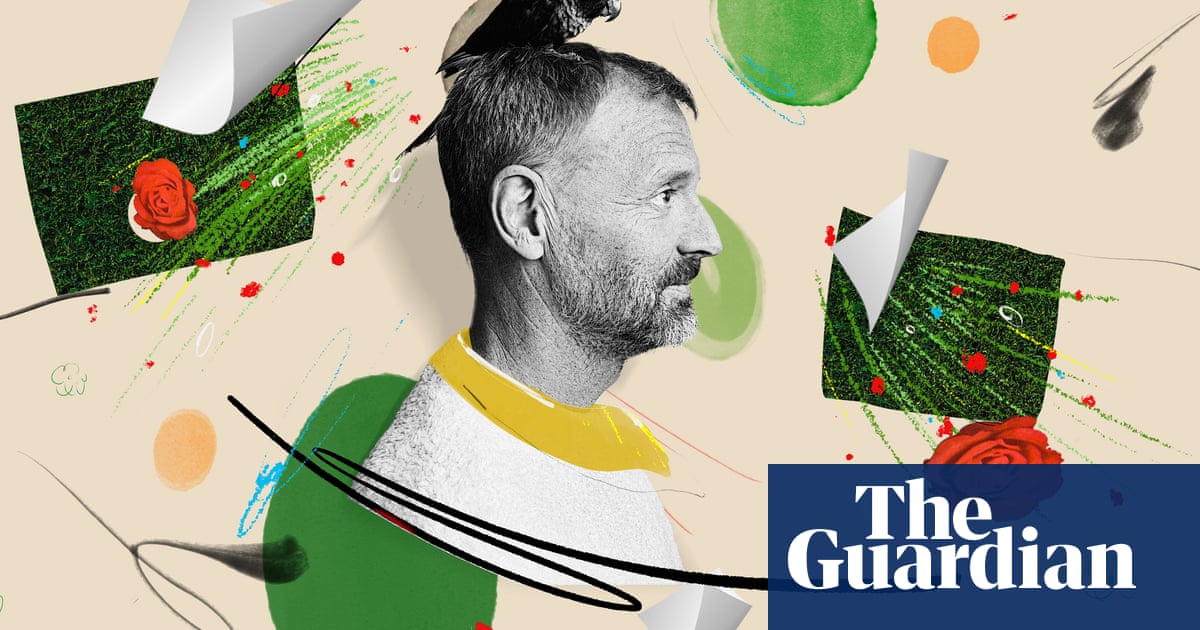I am sitting in my office shed, marvelling that an email from a car hire company I last used six years ago feels entitled to employ the subject line DROP EVERYTHING.
“It’s hard to imagine,” I say, “how a 20% reduction in rental rates for the month of June could be sufficient cause for anyone to suddenly abandon their present business, be it knee surgery, adoption proceedings or, in this specific case, Wordle.”
The dog, which is lying on the step in front of the open door, lifts its head to look at me – an emboldening reminder that as long as I’m sharing space with an animal, I’m technically not talking to myself.
“Then again, I have sort of dropped everything to read this email,” I say.
My wife walks up to the door, leans in and hands me a small box.
“I found these in the car,” she says. “You requested them at some point.”
The box contains wooden plant labels – essentially ice lolly sticks with one pointed end – which would have served a definite and supportable purpose about three weeks ago.
“Yeah, a while back,” I say.
“Not at all,” my wife says, turning for the kitchen.
I examine the box: the back bears a photographic illustration of a properly deployed plant label, stuck pointy end down into some soil next to a seedling. On the label someone has helpfully written “Plant Name” in a neat cursive hand. The accompanying instructions say: “Simply push in.”
“Can it really be that simple?” I say, looking up to find that the dog has followed my wife back to the house.
I gaze across the rows of seedlings I planted out in the raised bed in a frantic hurry when they outgrew their trays – some struggling, some thriving, all of them unlabelled. I convinced myself I would remember which row was which – I was wrong. But now, I realise, a solution is at hand: I can write “Plant Name” on all my new labels, and simply push them in.
Ten minutes later, my wife returns.
“I have someone coming for lunch,” she says. “Could you possibly mow the lawn?” I swivel my chair to look at her.
“What, just drop everything?” I say.
“What is it you’re actually doing?” she says.
“That,” I say, “is not a question I feel the need to answer.”
“She’s coming at one, so,” my wife says.
“Fine,” I say.
All things being equal, I am an enthusiastic supporter of basic safety precautions. That said, I’m pretty certain it’s not a good idea to mow the lawn in flip-flops, and yet I have already made the decision not to change out of them and into shoes.
I resent having my working day interrupted, even though I’m not working. Writing involves a certain level of tactical time-wasting – you sometimes have to bore yourself into concentrating. Absorbing menial chores – cutting the grass, say – are no help. I need to get back to doing nothing, and quickly.
Anyway, I tell myself as I begin, the lawnmower has a sort of dead man’s handle – if I keeled over from a heart attack the blades would stop turning. What’s the worst that could happen?
This question is answered almost as soon as I ask it: pulling the lawnmower backwards from a tight corner, I step out of my left flip-flop and partially run it over. It’s not ruined – just scarred – but the sight of it is immediately sobering.
My wife’s guest arrives at one. It’s not clear, from my vantage point at the other end of the garden, how my own lunch plans are affected. Am I invited? Or am I supposed to wait until the guest departs, and then slither over to feed on whatever scraps remain? The dog comes out and resumes lying in front of my office door.
“What’s going on in there?” I say. “Are they eating yet?” The dog stares straight ahead, as if it hasn’t heard me. How long, I think, before hunger drives me to go and investigate?
The answer is: not that long. The guest, it turns out, is our friend Louise.
“Hello,” I say, looking at the plates.
“Well done for staying away for a whole hour,” my wife says. “I’ve saved you some food.”
“I can’t eat now,” I say, “I’m busy.”
“He’s busy,” says Louise.
“I just came in to say hi,” I say, turning to leave.
“There he goes,” my wife says. “Flip, flop, flip, flop.”
Back in my office, I sit at my desk, staring at a blank white screen and thinking about just dropping everything and hiring a car.
